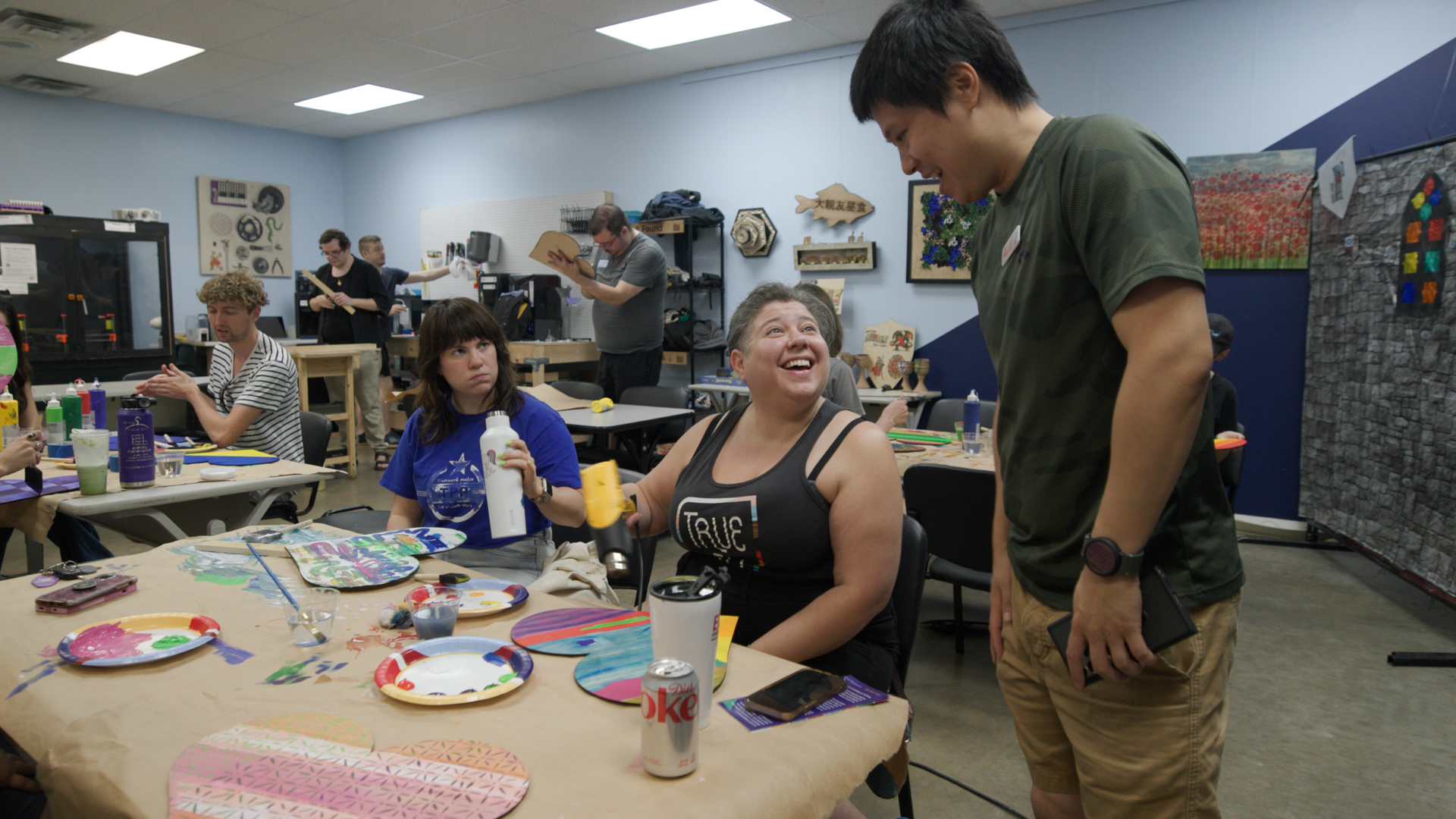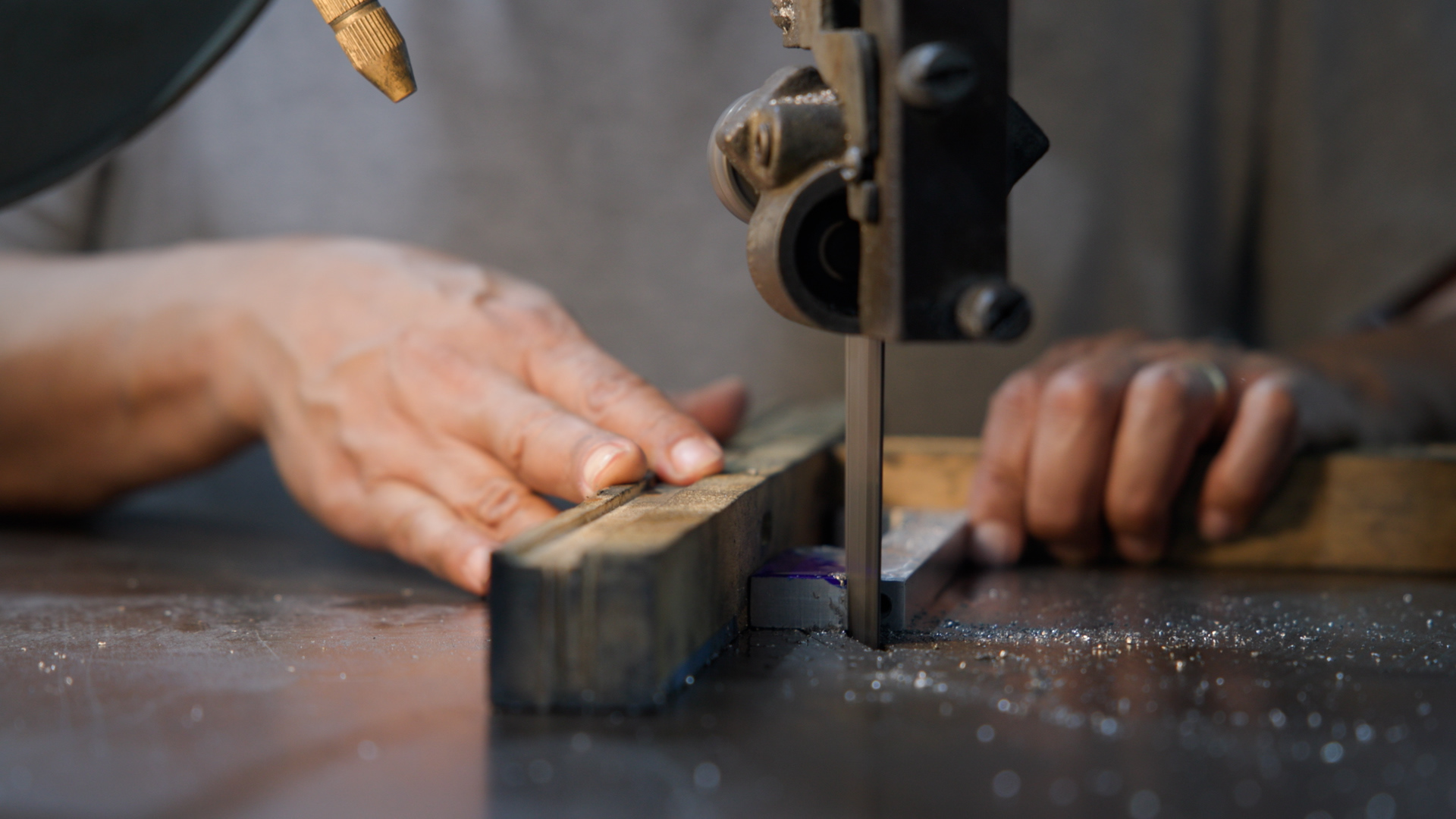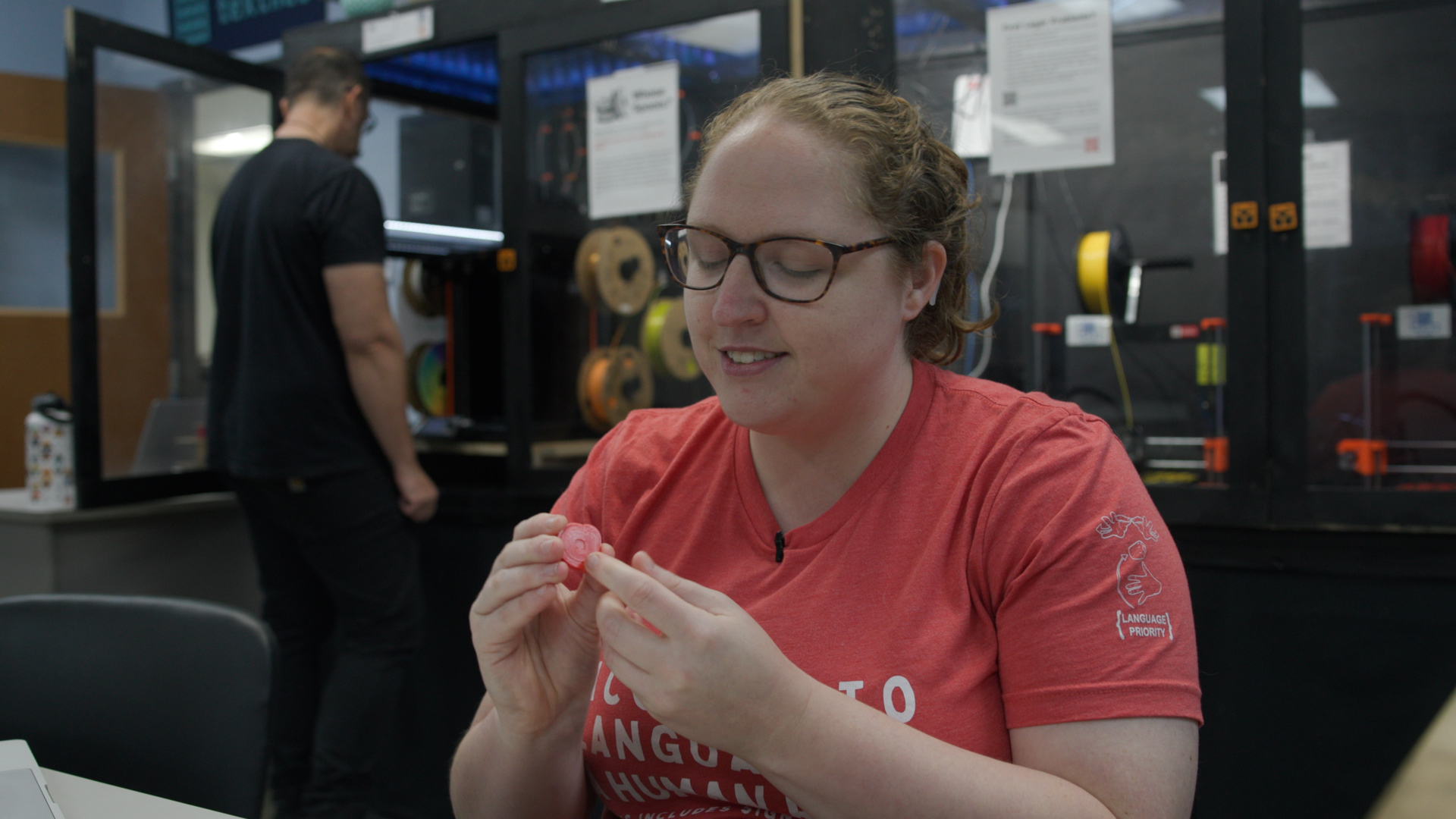Assembling Space For All
A lot of things may come to mind when people think of Pride month: parades, rainbow flags, community. Laser cutters are probably not at the top of the list. But at a recent free community event in Rundberg, ASMBLY Makerspace brought those together. Staff used on-site machines to cut wood hearts for yard signs, and attendees could custom paint them to show their support of the LGBTQ community year-round.
“We try to have as many free events as possible,” says Valerie Wilmot, the volunteer executive director for ASMBLY. “So that if the cost of membership or the cost of class is a barrier for someone, they can still come and attend free educational events or get involved with doing stuff and making things.”
Cost might not be the only barrier preventing people from checking out maker spaces like ASMBLY. Skilled trades have historically been fields occupied by men and tied to traditional gender roles. It can feel intimidating for people who don’t feel like they fit the mold to enter those rooms. But ASMBLY is on a mission to make creativity accessible to everyone.
“When people come through these doors, everything else outside of that kind of stays,” says Wilmot. “We're just here to create and we care about making sure that everybody is safe and feels welcome.”
Attendees at an ASMBLY community event paint Pride yard signs.
Wilmot says maker spaces are basically ‘a gym for tools’--members can come in and access fully equipped shops for everything from metalwork and welding to woodworking and 3D printing. Wilmot was at home around heavy equipment, having grown up helping her dad renovate houses. But like many members, the problem she ran into was space, or the lack thereof.
“My now-husband was getting me a birthday gift and he was like, we don't have room for a table saw, so I'm going to get her a membership to this space so that she can have access to a table saw,” Wilmot says.
Wilmot is part of a growing contingent of women with an interest in skilled trades. The U.S. Bureau of Labor Statistics shows that from 2016 to 2021, the number of women working in skilled trades went up by a third. But only 3.9% are in roles where they get to work with tools. And while the bureau doesn’t track people’s sexual orientation, a 2015 United Kingdom construction industry survey found that only 2% of workers identified as LGBTQ. That sometimes means spaces can be less than welcoming, which is what Wilmot encountered. She says one of her first experiences at ATX Hackerspace was having someone tell her she was sanding something wrong.
A metalworker operates a saw. Skilled trades have traditionally been male-dominated fields, but labor statistics show more women are entering these industries.
“It was described, I think, accurately, as like an 80s computer club vibe,” Wilmot says. The experience pushed her and other members to create ASMBLY Makerspace in 2019, and eventually merging with ATX Hackerspace in 2021. They changed not only the rooms but also the tone.
“[We changed] the way the physical space felt so that it was more open and bright,” Wilmot says. “We also, with that, tried to shift the culture to being more inquisitive and welcoming and encouraging towards everyone, regardless of their experience level.”
ASMBLY has done this by partnering with organizations that aim to bring underrepresented groups into different trades, like Girl With Grit, a nonprofit organization that introduces women and young girls to STEM fields and skilled trades. ASMBLY staff also try to elevate members from all backgrounds to shop leads that help run and maintain different areas.
“Every opportunity we have to uplift someone in the space like that, we try to try to do that,” says Wilmot.
Accessibility doesn’t end at the shop doors. Members like Rebekah Wilson are using ASMBLY tools to make the world more accessible. As a teacher for deaf students in Round Rock ISD, Wilson says a lot of material needs to be reimagined for visual learning. But oftentimes those materials don’t even exist. That’s what led Wilson to spend hours 3D printing hundreds of letters in order to create a tactile way to explain word families.
“Our top priority, other than them learning, is feeling included and having resources that actually support them,” Wilson says. “I couldn't afford the equipment that we have here at home, and I wouldn't be able to make stuff like this if I didn't have this kind of resource.”
Rebekah Wilson checks a letter she made with a 3D printer. Access to maker spaces has allowed her to custom build educational material for deaf students.
For Wilmot, tools were a resource that empowered her growing up. She wants to share that feeling with as many people as possible.
“I think it has a really transformative power beyond making stuff,” Wilmot says. “And I want everybody to have that experience a little bit.”
How did we do on this story? You can share your thoughts [here](https://docs.google.com/forms/d/e/1FAIpQLScsLvG39Ovzn6KNCZG9wTgwb9GVhTDXGFXnnD000PNXouYzTQ/viewform?usp=header "asmbly general feedback form").
Community journalism doesn’t happen without community support.
Got story ideas, advice on how we can improve our reporting or just want to know more about what we do? Reach out to us at news@klru.org.
And if you value this type of reporting, then please consider making a donation to Austin PBS. Your gift makes the quality journalism done by the Decibel team possible. Thank you for your contribution.
More in Culture:
See all Culture posts








Contact Us
Email us at news@klru.org